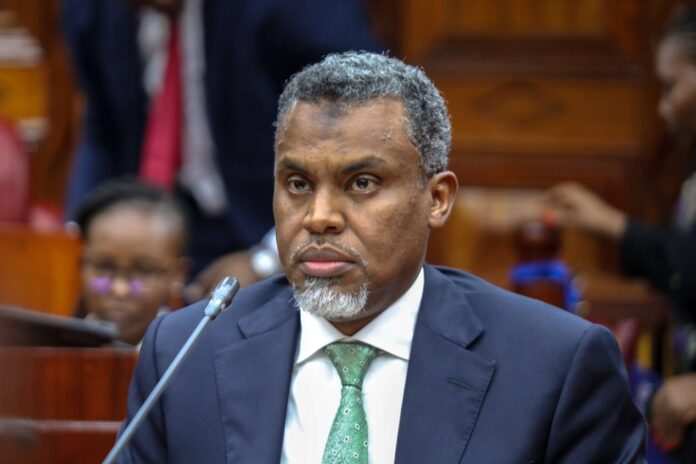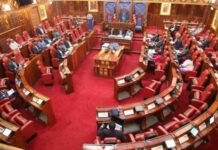
Kenya’s Director General of the National Intelligence Service (NIS), Nordin Haji, has raised a red flag over the country’s ability to manage growing security threats due to inadequate funding.
Speaking before Parliament’s Defence and Intelligence Committee, Haji warned that the current allocation of KES 55 billion for the 2024–2025 financial year is insufficient, citing a critical funding gap of KES 14 billion.
In a candid address, Haji revealed that security agencies are increasingly stretched thin, unable to counter escalating threats, including the proliferation of illegal firearms from neighbouring countries.
He highlighted that weapons continue to flow into Kenya from volatile regions including Uganda, South Sudan, Ethiopia, and Somalia—raising concerns of cross-border insecurity.
“If this is not resolved, we may not be at liberty to enjoy the freedoms we boast,” Haji told the committee, painting a grim picture of the future should the budget gap persist.
He stressed that despite the NIS successfully averting multiple security breaches, the lack of consistent financial support undermines the agency’s operational effectiveness, especially in tackling modern threats such as cyber warfare, terrorism, and global disinformation campaigns.
Historical budget trends show fluctuating support for the intelligence sector. The NIS operated on a KES 45 billion budget in 2020–2021, which rose slightly to KES 47 billion in 2021–2022.
However, in 2022–2023, Parliament slashed the allocation by KES 10 billion, reverting it to KES 45 billion before the recent increase.
Haji’s warning comes as Kenya faces an increasingly complex security landscape, demanding urgent financial and strategic reassessment to safeguard national stability.


















